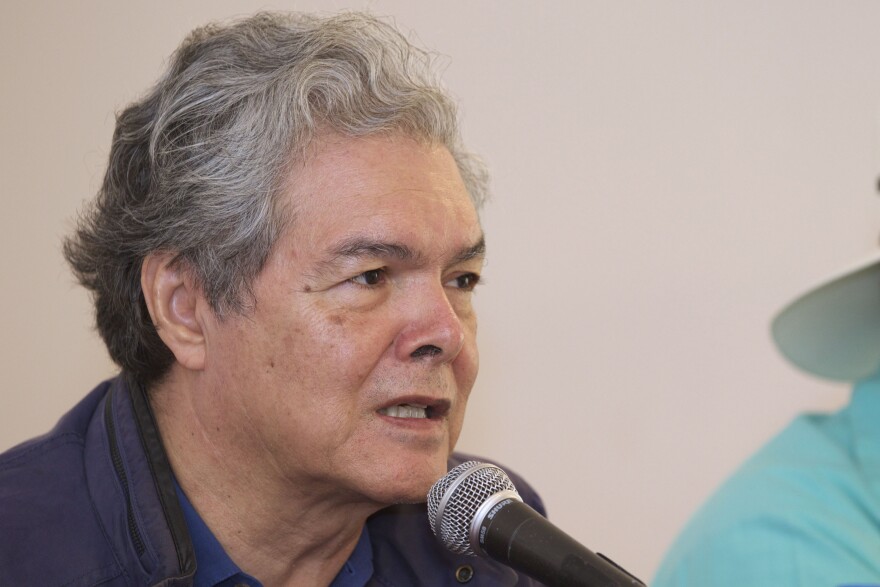Today's world, on the one hand, is troubling. Borders have become the proverbial line drawn in the sand… “Are you with me, or against me?” Yet, like the Gulf of Mexico, or any other large body of water, there is an ebb and flow which is natural. The approaching high tide erases any lines, or footprints, in the sand.
This is one of the reasons music and its parent, culture, has played such a vital role in the enrichment of our shared American continents. It's a two-way street with our North American culture and the cultures of Latin America coming together through music and art.
The Danzon No. 2, by the Mexican composer Arturo Márquez, is heard as often in the U.S. as in Mexico. There's much to be learned from this rhythmic, pulsing ten minutes of music. Unfortunately, it can be played as only pages filled with notes or, as pianist Allison Franzetti relates, the inner secrets of Márquez’s Danzon are waiting for discovery.
“There's another conductor that comes to mind who I've worked with, and he's excellent. I've worked with him on a Latin America program and one the pieces was Danzon No. 2, and he had quite a bit to say to me about it, and I've played it a gazillion, trillion times, but he was very specific about he wanted me to do and why he wanted me to do it. And I really had to practice and think about what he was saying, and it worked out really well.”
Composer and conductor Jose Serebrier, born in Uruguay, is well known throughout the Americas, including the United States. As with so many in inter-racial relationships, Serbrier's marriage to soprano Carol Farley, born in Iowa, has suggested we are well served by a broader view of who we are as Americans. The Rio Grande to our south and the 49th parallel, to our north, should not isolate the U.S. from our neighbors north and south. After all, America stretches from the Arctic to Tierra del Fuego. True, some of us dance in three-quarter time, others in four, but we are still Americans, all. Jose Serebrier's Casi un Tango is, by the composer's own admission, not technically a tango, which moves to a four-four beat, but rather a tango in spirit, as WE are Americans in spirit.
In the music of the Peruvian composer Jimmy Lopez we find an amalgam of contrasting yet complimentary elements. He describes his composition, Fiesta, as a blending of European compositional techniques, Latin and Afro-Peruvian voices and today's pop music. That sounds an awful lot like he's describing the Americas and the music we might find in a Great Americas Songbook.
Resonating with Lopez's Fiesta are the musical sensibilities of conductor Miguel Harth-Bedoya. Like Lopez, Harth-Bedoya is Peruvian by birth. From 2000 to 2020, Harth-Bedoya was the conductor of the Fort Worth Symphony Orchestra. He is currently the Resident Director of Orchestras and Professor of Conducting at the Shepherd School of Music at Rice University.
There is the tango, the bossa nova, boleros and sambas and then there is jazz. The Mexican composer and pianist Eugenio Toussaint spent a number of years in the United States with his brothers—also musicians—absorbing the varied inflections of jazz. They returned to Mexico to form a band called Sacbe, modeled somewhat after the American band, Weather Report. Somewhere around the year 2000, Toussaint went into the studio, solo, to make an album of his own originals, called El Pez Dorado. Here you find a gifted pianist, Mexican by birth, playing in a style which might remind us of Bill Evans or Lyle Mays.
As we wind down this season of Momentos Musicales, let's remember that this great amalgam of many musical voices, this Great Americas Songbook, is not seasonal, it's from January to December, and within is space for many. Let's continue to hear this as OUR Great Americas Songbook.



